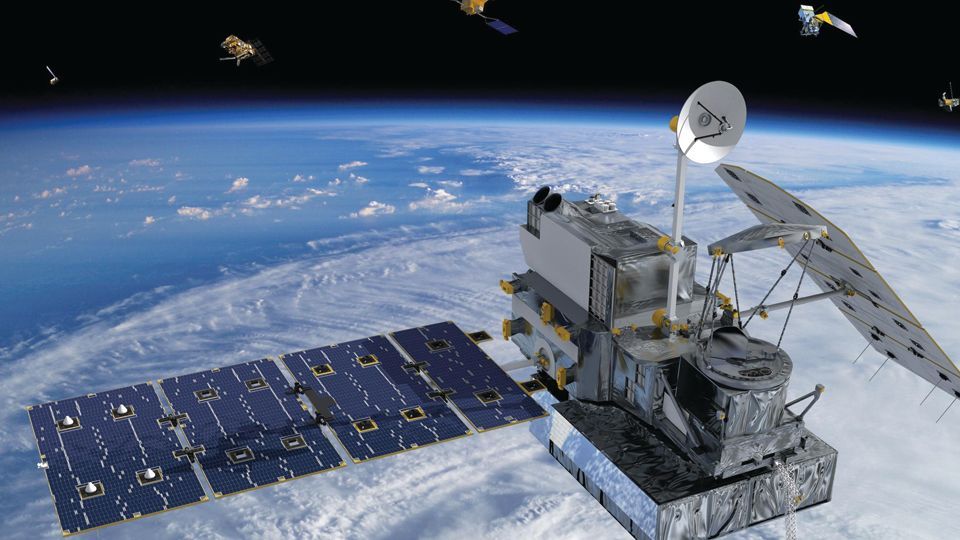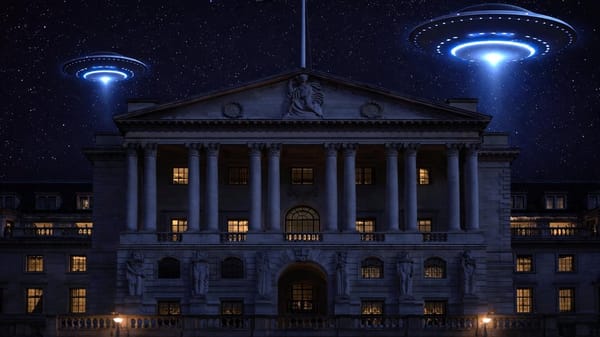Corporations are beginning to enter and take the lead in the new space race

Did you know that our atmosphere is filled with more than 11,000 objects that have been launched since the journey into space began.

The Space Race first began during the Cold War, and at first the Soviet Union seemed to dominate when it came to the numerous amount of devices and objects launced into earth atmosphere. But, as Visual Capitalist's Avery Koop details below, a few years ago, the U.S. took back that title with Elon Musk’s SpaceX helping lead the charge.
The chart used from Our World in Data, tracks the amount of objects launched into space by country over time.
What exactly gets launched into Space?
- Satellites
- Crewed spacecraft
- Probes
- Space station flight equipment
Probes and landers like the Mars Rover, for example, have helped many scientists explore space and other planets. Satellites on the other hand provide us with modern day necessities like cell phone service, television signals, satellite imagery and GPS.
As of late 2021, there were around 4,852 operational satellites in orbit with 2,944 of those belonging to the United States. Here’s a quick look at what the U.S. uses its satellites for:
- Commercial: 2,516
- Military: 230
- Government: 168
- Civil: 30
Many of the satellites in orbit, however, are no longer functional. In fact, according to NASA, there are over 27,000 pieces of space debris in orbit.
The Space Race, by Country
The journey into outer space first started during the Cold War when the USSR launched the first satellite called the Sputnik 1 in 1957. After this the U,S, and Soviet Union entered a space race between technological advancements and the scientific exploration into space.
Very few countries have come close in matching either the U.S. or Russia so far.

One important thing to note here is that not all of the countries listed have orbital launch capabilities, which means that even though the satellite in space may belong to a country, that doesnt mean that it was launched by said country. For example, the United Kingdoms first launch in 1971 was launched from Australia and France's first launch took place in Algeria in 1965.
In total, around 86 countries have attempted some kind of entry into space. However, as of 2022, only 11 countries have the capability to send objects into space using their own launch rockets and only three0 the U.S., Russia, and China have ever launched people into our space.
The Future of Space
With corporations beginning to enter and take the lead in the space race, the battleground for space launches is changing. In 2019 Elon Musk's Starlink, a constellation of satellites which provides 36 countries with internet access, was launched. With more than 2,200 Starlink satellites in the sky and counting, SpaceX's sets out to achieve the ultimate goal that is global internet coverage as China is looks to do the same.
Among useful satellites and scientific exploration, other potential space industries seem to be emerging.
As one example. the business of commercial space tourism is no longer a dream. In late 2021, famous billionaire and founder of Virgin Galactic, Richard Branson flew into space on a private flight. Jeff Bezos, having founded Blue Origin, took to space shortly after.
Today Blue Origin and Virgin Galactic are licensed by the Federal Aviation Administration for passenger space travel, However it is only exclusive to the 1% who have around $250,000-$500,000 to purchase a ticket.
Thanks for visiting Our Secret House. Create your free account by signing up or log in to continue reading.





